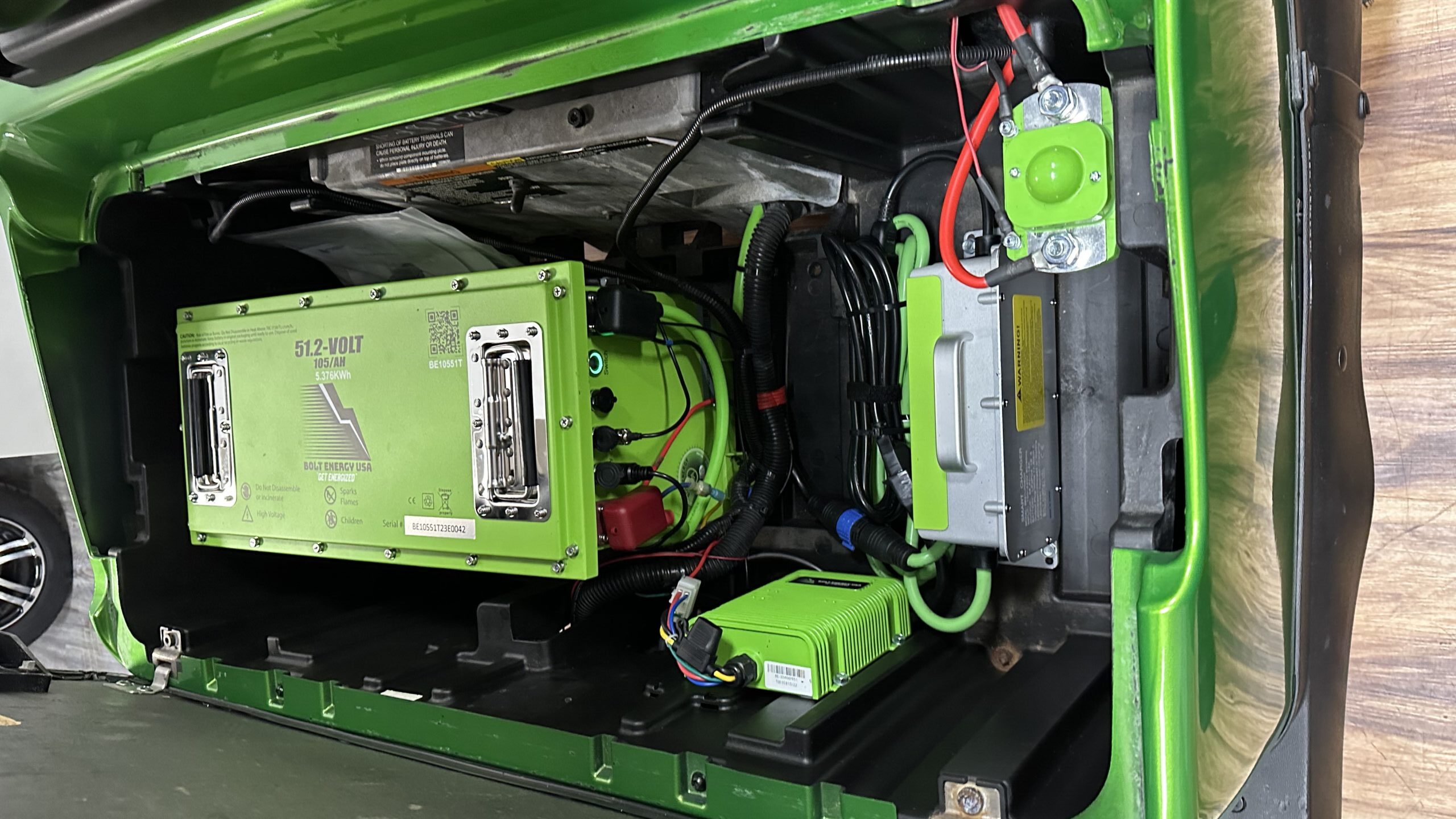
Lithium Ion Conversions:
Swing by and Check Out Our Upgraded 2017 Club Car Precedent!
We’ve taken a 2017 Club Car Precedent and given it a major boost by converting it from Flooded Lead Acid to Lithium Ion. It’s now in-store and ready for a test drive!
Why Go Lithium?
Golf carts with lithium batteries are like the superheroes of the golf course. Here’s why:
- Energy Powerhouse: Lithium batteries pack more energy in a lighter package, giving your cart better performance and faster charging times.
- Longevity: They outlast traditional lead-acid batteries, meaning you save money in the long run.
- Low Maintenance: Say goodbye to regular maintenance checks and hello to hassle-free carting.
Meet LiFePO4 – The Super Safe Battery!
LiFePO4 (Lithium Iron Phosphate) is a top-notch type of lithium battery. Here’s why it’s a winner:
- Safety First: Super stable and less prone to overheating, making it a safe choice.
- Long Life: It keeps going and going, handling more charge cycles without wearing out.
- Consistent Power: Delivers steady power, keeping your cart running smoothly.
Cool Features of LiFePO4 Batteries
- Stable Voltage: Keeps your cart running at a steady pace.
- Slow Self-Discharge: Holds charge longer when not in use.
- Wide Temperature Range: Performs well in both hot and cold weather.
- Eco-Friendly: Non-toxic and safer for the environment.
Golf Cart Battery Basics
Understanding battery capacity can feel tricky, but it’s really just about how much power a battery can store and deliver. Here’s the scoop:
Battery Capacity (Ah) = Current (A) × Time (h)
So, if a battery delivers 10 amps for 5 hours, its capacity is 50 Ah. Simple, right? But remember, factors like discharge rate and temperature can affect this.
Ready for a Lithium Upgrade?
We’re seeing a big rise in demand for lithium conversions, and for good reason! Switching to lithium means less maintenance and more fun. Just be cautious about going too cheap – quality matters!
Questions to Consider:
- Why switch to Lithium Ion? Tired of lead-acid maintenance woes? Lithium is the answer!
- Will it increase my cart’s value? Maybe not, but it sure will reduce your maintenance headaches.
Get the Best with Bolt Energy Batteries
Due to high demand and the benefits of lithium, we’ve set up a dedicated site for financing our Bolt Energy Batteries. Whether you DIY or let us handle the installation, we’ve got you covered.
Check out our selection at Parts N Carts or give us a call at 813-634-6646 to schedule your conversion today! Let’s make your golf carting experience the best it can be!
